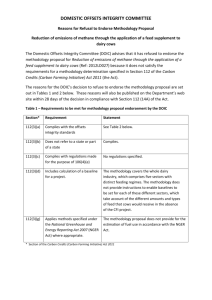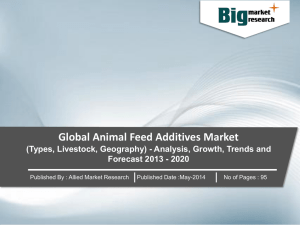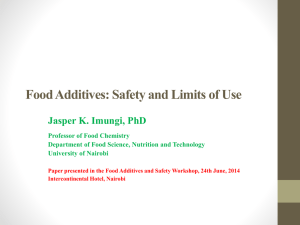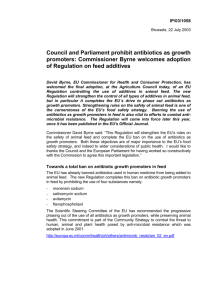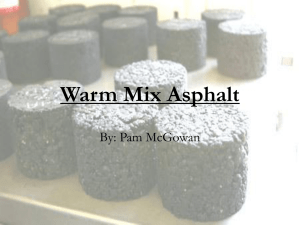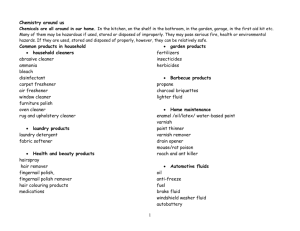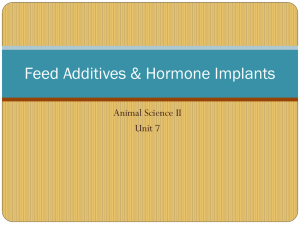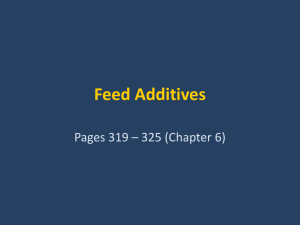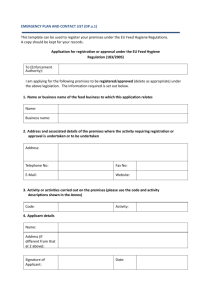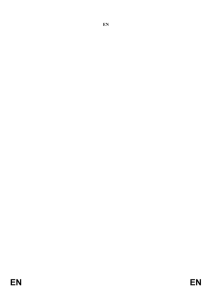043FA2012 DOIC statement of reasons (DOCX
advertisement
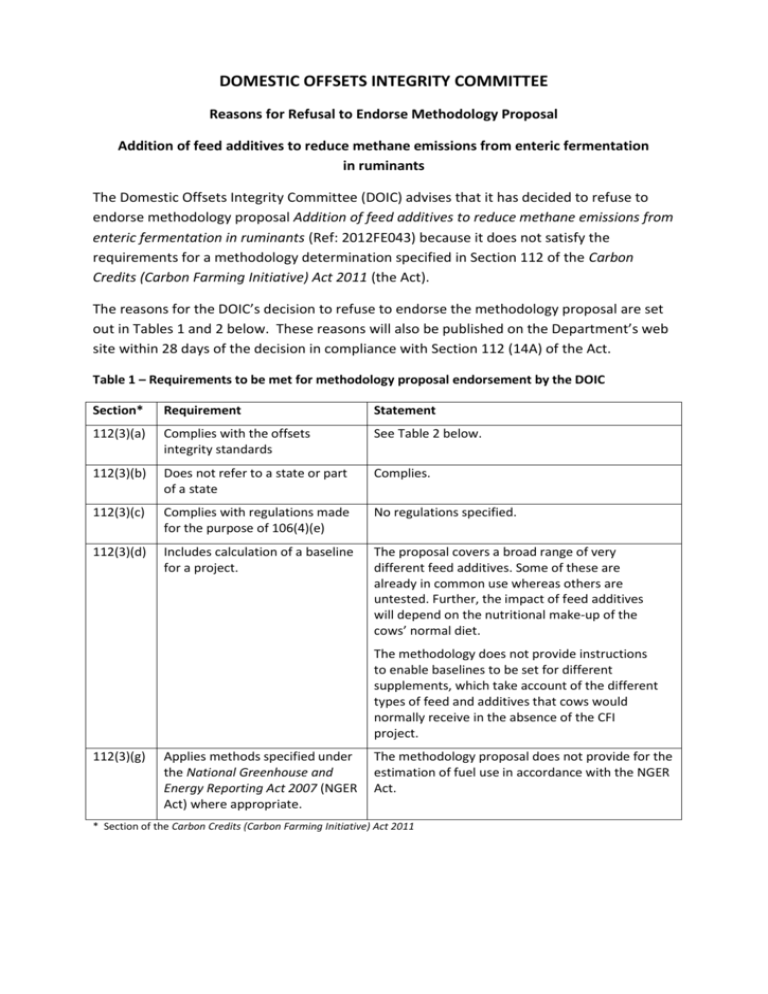
DOMESTIC OFFSETS INTEGRITY COMMITTEE Reasons for Refusal to Endorse Methodology Proposal Addition of feed additives to reduce methane emissions from enteric fermentation in ruminants The Domestic Offsets Integrity Committee (DOIC) advises that it has decided to refuse to endorse methodology proposal Addition of feed additives to reduce methane emissions from enteric fermentation in ruminants (Ref: 2012FE043) because it does not satisfy the requirements for a methodology determination specified in Section 112 of the Carbon Credits (Carbon Farming Initiative) Act 2011 (the Act). The reasons for the DOIC’s decision to refuse to endorse the methodology proposal are set out in Tables 1 and 2 below. These reasons will also be published on the Department’s web site within 28 days of the decision in compliance with Section 112 (14A) of the Act. Table 1 – Requirements to be met for methodology proposal endorsement by the DOIC Section* Requirement Statement 112(3)(a) Complies with the offsets integrity standards See Table 2 below. 112(3)(b) Does not refer to a state or part of a state Complies. 112(3)(c) Complies with regulations made for the purpose of 106(4)(e) No regulations specified. 112(3)(d) Includes calculation of a baseline for a project. The proposal covers a broad range of very different feed additives. Some of these are already in common use whereas others are untested. Further, the impact of feed additives will depend on the nutritional make-up of the cows’ normal diet. The methodology does not provide instructions to enable baselines to be set for different supplements, which take account of the different types of feed and additives that cows would normally receive in the absence of the CFI project. 112(3)(g) Applies methods specified under the National Greenhouse and Energy Reporting Act 2007 (NGER Act) where appropriate. The methodology proposal does not provide for the estimation of fuel use in accordance with the NGER Act. * Section of the Carbon Credits (Carbon Farming Initiative) Act 2011 Table 2 – Offsets Integrity Standards Section* Requirement Statement 133(1)(a) Covered by the additionality test regulations. The methodology covers a broad range of food supplements, some of which are already in common use. 133(1)(b) Estimations of emissions reduction, sequestration and emissions are measurable and capable of being verified. Different feed additives have different emissions reduction potential. The methodology does not provide instructions for estimating abatement associated with different food additives. Further, beyond a certain level, feed additives can become toxic to cattle and ineffective in reducing emissions. The methodology does not take account of these effects. 133(1)(c) Methods specified in the methodology are not inconsistent with the methods set out in the National Inventory Report. There is insufficient information to determine whether the methods in the proposal are consistent with the methods in the National Inventory Report. 133(1)(d) The methodology is supported by relevant scientific results published in peer-reviewed literature. The proposal does not take account of evidence of the varying effects of different food additives on both methane emissions and cattle. 133(1)(e) Net abatement is calculated after deducting the emissions generated as a result of carrying out the project. The greenhouse gas assessment boundary is incomplete. It does not include emissions from fuel use. 133(1)(f) Methodologies related to sequestration projects should provide for adjustments that take account of cyclical variations. The methodology does not need to provide for adjustments for cyclical variations because it is not related to a sequestration project. 133(1)(g) Estimates, projections or assumptions included in the methodology are conservative. The methodology proposal does not provide instructions for calculating the abatement from different feed additives that take account of the nutritional composition of cows’ existing diet 133(1)(h) Applies methods specified under the National Greenhouse and Energy Reporting Act 2007 (NGER Act) where appropriate. The methodology proposal does not provide for the estimation of fuel use in accordance with the NGER Act. The proposal does not account for differences in the gas assessment boundary for different types of feed additives. Additives such as fats/oils are bi-products that would be produced anyway and would not need to be included in the project boundary. Additives such as tannins or nitrates would be produced because of the project and may need to be included. * Section of the Carbon Credits (Carbon Farming Initiative) Act 2011
